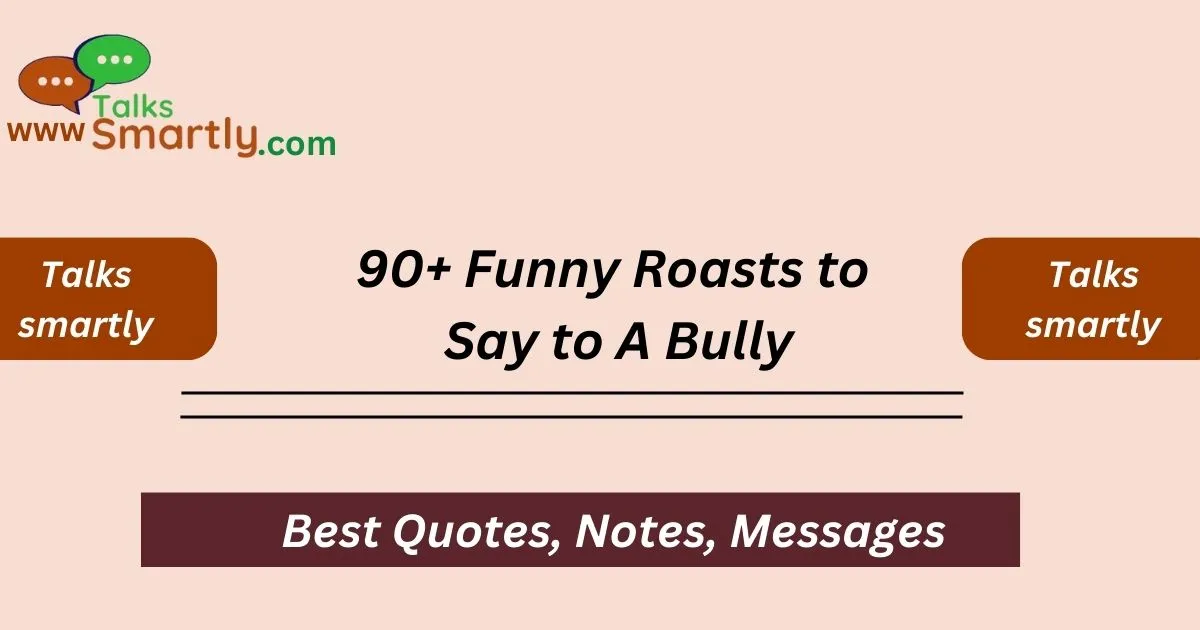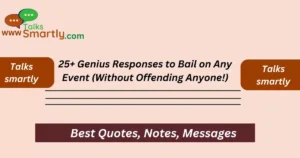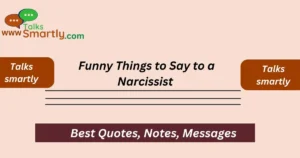“Dealing with bullies can be tough, but a touch of humor can lighten the mood and disarm tense situations. This article compiles over 190 witty comebacks and playful insults designed to assert boundaries while keeping interactions light-hearted and respectful.”
Dealing with a bully can be challenging, but sometimes a touch of humor can defuse tense situations.
This article compiles over 190 witty comebacks and playful insults designed to disarm bullies while keeping interactions light-hearted and respectful.
Each response is crafted to subtly assert boundaries without escalating conflict, making them ideal for various social settings.
Dealing with Bullies? Lighten the Mood with Humor
“Your secrets are always safe with me. I never even listen when you tell me.”
- This response humorously suggests indifference towards the bully’s opinions or gossip, subtly conveying that their words hold no weight.
“I’d tell you to take a long walk off a short pier, but that would require effort on your part.”
- This comeback light-heartedly dismisses the bully’s presence, implying their actions aren’t worth the effort of a substantial response.
“You bring everyone so much joy… when you leave the room.”
- This humorous remark employs irony to suggest that the bully’s absence is more appreciated than their presence, playfully asserting the speaker’s preference.
“I treasure the time I don’t spend with you.”
- This response uses sarcasm to highlight the speaker’s disdain for the bully’s company, subtly asserting that they value their peace away from the bully.
“Your voice is my favorite sound to ignore.”
- This comeback humorously suggests that the bully’s attempts to communicate are unimportant or unwelcome, playfully dismissing their presence.
“Remember when I asked for your opinion? Me neither.”
- This witty response humorously implies that the bully’s opinions are forgettable or irrelevant, subtly asserting the speaker’s disregard for their input.
“You’re not as bad as people say. You’re much, much worse.”
- This playful insult uses exaggeration to humorously suggest that the bully’s negative reputation is well-deserved, subtly challenging their behavior.
“I’m busy right now; can I ignore you some other time?”
- This response humorously suggests that the bully’s presence is unwelcome or inconvenient, playfully asserting the speaker’s disinterest.
“You’re the reason I prefer animals to people.”
- This humorous remark suggests that the bully’s behavior is so unpleasant that animals are preferred company, subtly criticizing their actions.
“I envy everyone you have never met.”
- This witty remark humorously suggests that the bully’s negative impact is so significant that others are fortunate to have not encountered them, subtly asserting their dislike.
Clever Comebacks and Funny Replies for Bullies
“I’d agree with you, but then we’d both be wrong.”
- This clever comeback humorously dismisses the validity of the bully’s statement, subtly asserting the speaker’s contrary viewpoint.
“You’re not stupid; you just have bad luck thinking.”
- This witty response humorously suggests that the bully’s thoughts or ideas are consistently flawed, playfully criticizing their intellect.
“If laughter is the best medicine, your face must be curing the world.”
- This playful insult uses exaggeration to humorously imply that the bully’s appearance brings joy or amusement to others, subtly challenging their self-importance.
“You’re the reason we have middle fingers.”
- This humorous remark playfully suggests that the bully’s behavior warrants a gesture of defiance or dismissal, subtly asserting the speaker’s disapproval.
“You’re like a software update. Every time I see you, I immediately think ‘not now’.”
- This witty response humorously compares the bully to an unwelcome interruption, subtly suggesting that their presence is disruptive or unwelcome.
“Your talk is cheap, but the silence you create is priceless.”
- This clever comeback humorously suggests that the bully’s attempts at communication are unimpressive or insincere, subtly criticizing their behavior.
“I’d give you a nasty look, but it seems you’ve already got one.”
- This humorous remark playfully suggests that the bully’s appearance or demeanor already conveys their unpleasantness, subtly asserting the speaker’s amusement.
“You’re like a gray sky; when you’re not around, everything is so much brighter.”
- This playful insult uses metaphor to humorously suggest that the bully’s absence improves the environment, subtly challenging their negative impact.
“I’d love to stay and chat, but I’d rather have root canal surgery.”
- This witty response humorously exaggerates the unpleasantness of the bully’s company, subtly asserting the speaker’s desire to avoid further interaction.
“Weird? Nah, limited edition. Thanks for noticing!”
- This clever comeback humorously accepts the bully’s criticism with pride, subtly asserting the speaker’s self-confidence and individuality.
“Yeah, figured I’d go easy on ’em and not go pro.”
- This playful response humorously suggests that the speaker is intentionally holding back from fully engaging with the bully, subtly asserting their restraint.
“Thanks, mission accomplished – nailed the ‘dressed in the dark’ look.”
- This witty remark humorously accepts the bully’s criticism of the speaker’s appearance, subtly suggesting that their opinion is unimportant or unwelcome.
“I keep thinking you can’t get any dumber, and you keep proving me wrong.”
- This clever comeback humorously criticizes the bully’s intellect, subtly asserting the speaker’s superiority in reasoning or judgment.
“Someday you’ll go far. And I hope you stay there.”
- This playful insult uses irony to humorously wish the bully success in leaving the speaker’s presence, subtly asserting their desire for distance.
“You have an entire life to be an idiot. Why not take today off?”
- This humorous remark playfully suggests that the bully’s behavior is predictable or repetitive, subtly criticizing their lack of intelligence.
“Why don’t you slip into something more comfortable, like a coma?”
- This witty response humorously suggests that the bully’s presence is so unpleasant that unconsciousness would be preferable, subtly asserting the speaker’s disdain.
“I’d explain it to you, but I’m out of puppets and crayons.”
- This clever comeback humorously dismisses the bully’s ability to understand complex concepts, subtly asserting the speaker’s intellectual superiority.
“You’re the reason people prefer to work with machines.”
- This playful insult humorously suggests that the bully’s behavior is so undesirable that automated interactions are preferred, subtly challenging their social skills.
“You’re about as effective as a white crayon.”
- This witty remark humorously compares the bully to an ineffective or impractical object, subtly suggesting that their efforts are futile or unsuccessful.
“You’re like an elevator, on many levels you’re wrong.”
- This clever comeback humorously suggests that the bully’s statements or actions are consistently incorrect, subtly asserting the speaker’s contrary viewpoint.
“If you were twice as smart, you’d still be stupid.”
- This playful insult humorously criticizes the bully’s intelligence, subtly asserting the speaker’s perception of their cognitive abilities.
“You’re like a cloud. When you disappear, it’s a beautiful day.”
- This witty response humorously compares the bully’s absence to improved conditions, subtly suggesting that their presence is unwelcome or unpleasant.
Playful Insults to Disarm a Bully (But Kindly)
“I don’t have the time or the crayons to explain this to you.”
- This clever comeback humorously suggests that the bully’s lack of understanding is beyond the speaker’s willingness to explain, subtly asserting the speaker’s limited patience.
“Our village just called. They’re missing their idiot.”
- This playful insult humorously suggests that the bully’s behavior is so foolish or undesirable that they are mistaken for someone else, subtly criticizing their actions.
“You’re not the dumbest person in the world, but you better hope they don’t die.”
- This witty remark humorously suggests that the bully’s intelligence is low, but not the worst globally, subtly challenging their perception of their own abilities.
“I’d tell you to go to hell, but I work there and don’t want to see you every day.”
- This clever comeback humorously rejects the bully’s suggestion with irony, subtly asserting the speaker’s refusal to engage further.
“If ignorance is bliss, you must be the happiest person on earth.”
- This playful insult humorously suggests that the bully’s lack of knowledge or awareness contributes to their perceived happiness, subtly criticizing their behavior.
“You’re like a software glitch. Annoying and hard to get rid of.”
- This witty response humorously compares the bully to a technical error, subtly suggesting that their presence is unwelcome or problematic.
“I’d love to insult you, but I’m afraid I won’t do as well as nature did.”
- This clever comeback humorously acknowledges the bully’s negative qualities with sarcasm, subtly asserting the speaker’s unwillingness to engage in further criticism.
“You’re like a slinky; not really good for much but bring a smile when pushed down stairs.”
- This playful insult humorouslycompares the bully to a toy that’s amusing under specific conditions, subtly suggesting their lack of utility in other contexts.
“You are proof that evolution can go in reverse.”
- This witty remark humorously criticizes the bully’s perceived lack of progress or development, subtly asserting the speaker’s belief in human advancement.
“Brains aren’t everything. In your case, they’re nothing.”
- This clever comeback humorously dismisses the bully’s intelligence, subtly asserting the speaker’s belief in the importance of intellect.
“I’d love to have a battle of wits with you, but it seems you’re unarmed.”
- This playful insult humorously suggests that the bully lacks the intellectual capacity to engage in a battle of wits, subtly challenging their cognitive abilities.
“You’re as useful as a knitted condom.”
- This witty response humorously compares the bully to an impractical or ineffective object, subtly suggesting that their contributions are negligible.
“You should try eating some of your makeup so you can be pretty on the inside too.”
- This clever comeback humorously criticizes the bully’s superficiality, subtly asserting the speaker’s belief in inner beauty and character.
“You’re like a broken calculator; you can’t solve even the simplest problems.”
- This playful insult humorously compares the bully to a malfunctioning device, subtly suggesting their inability to handle basic tasks or challenges.
“You have your entire life to be a jerk. Why not take a day off?”
- This witty remark humorously suggests that the bully’s behavior is consistent and unwelcome, subtly challenging their need to continuously engage in negative interactions.
“You’re like an error message in the most stable software – unexpected and unwelcome.”
- This clever comeback humorously compares the bully to an unexpected disruption in a stable system, subtly suggesting their disruptive nature.
“Trying to understand you is like reading a manual for furniture that doesn’t exist.”
- This playful insult humorously suggests that the bully’s actions or words are incomprehensible or nonsensical, subtly asserting the speaker’s confusion.
“Your insults need upgrades.”
- This witty remark humorously suggests that the bully’s attempts at insults are outdated or ineffective, subtly challenging their ability to provoke others.
“Your IQ needs donations.”
- This clever comeback humorously suggests that the bully’s intelligence is insufficient and could benefit from external assistance, subtly asserting the speaker’s intellectual superiority.
“Your ego’s overinflated balloon.”
- This playful insult humorously suggests that the bully’s ego or self-importance is exaggerated, subtly challenging their perception of their own significance.
Your jokes: retired sitcoms.
- This suggests that your jokes are outdated and no longer relevant, much like old sitcoms that are no longer on air or popular.
Your comebacks: historic fossils.
- Describes your comebacks as ancient and antiquated, implying they are no longer effective or appropriate in modern conversations.
Your charm: expired centuries.
- Indicates that your charm has long expired, comparing it to something that has been obsolete for hundreds of years.
Your brain: still buffering.
- This compares your brain to a computer that is still in the process of loading or catching up, implying slowness or sluggishness in thinking.
Your humor: factory defect.
- Suggests that your sense of humor is flawed, like a product with a manufacturing defect that doesn’t work as intended.
Your taste: ancient history.
- Implies that your taste in things (such as style, preferences, or choices) is outdated and belongs to a distant era.
Your ego’s parking tickets.
- This metaphorically refers to your ego accumulating “parking tickets,” suggesting that it is constantly getting into trouble or being brought down a notch.
Your wit: emergency rescue.
- Describes your wit as something that is only activated in emergencies, implying it’s not readily available or consistently sharp.
Your advice: mindlessness supreme.
- Indicates that your advice lacks wisdom or thoughtfulness, suggesting it’s characterized by thoughtlessness or a lack of depth.
Your logic: lost cause.
- This suggests that your reasoning or logic is futile or hopeless, implying that attempts to reason with you are ineffective.
Your jokes: endangered species.
- Compares your jokes to an endangered species, implying they are rare, endangered, or at risk of extinction due to lack of quality or relevance.
Your aura: dull ache.
- Describes your aura or presence as a persistent, dull discomfort or annoyance, suggesting it lacks vibrancy or positive energy.
Your noise: future hush.
- Suggests that your current noise or presence will soon fade into silence or obscurity, implying that it lacks lasting impact or significance.
Your vibe: ancient myths.
- Compares your vibe or aura to ancient myths, suggesting it’s something fantastical or unreal, possibly outdated or not believed in anymore.
Your charm: distant galaxy.
- Implies that your charm is distant or unreachable, likening it to something far away in the vastness of space.
Your logic: missing components.
- Suggests that your logic is incomplete or lacking essential parts, implying it’s flawed or doesn’t make complete sense.
Your manners: urgent recall.
- Indicates that your manners need immediate improvement or correction, suggesting they are deficient or inappropriate.
Your ego: fake Rolex.
- Compares your ego to a fake Rolex, suggesting it’s a poor imitation or pretense of something valuable or genuine.
Your wit: emergency room.
- Compares your wit to an emergency room, suggesting it’s often needed urgently or only useful in critical situations.
Your jokes: fading laughter.
- Implies that your jokes no longer evoke laughter or amusement, suggesting they have lost their effectiveness over time.
Your charm: historic blunder.
- Describes your charm as a mistake or misstep from history, suggesting it’s something regrettable or poorly executed.
Your logic: last place.
- Suggests that your logic is at the bottom or last in terms of effectiveness or correctness, implying it’s consistently flawed or inferior.
Your presence: quiet now.
- Indicates that your presence is now quiet or subdued, possibly suggesting a lack of influence or impact.
Your comeback: silence needs.
- Suggests that your comeback or response is in need of silence, implying it’s ineffective or inadequate.
Your attitude: final countdown.
- Compares your attitude to the final moments before something ends, suggesting it’s approaching its conclusion or termination.
Your charm: escape room.
- Compares your charm to an escape room, suggesting it’s difficult to understand or navigate, possibly suggesting it’s puzzling or confusing.
Your confidence: past expiry.
- Implies that your confidence has expired or is no longer valid, suggesting it’s outdated or no longer relevant.
Your ego: error messages.
- Compares your ego to error messages, suggesting it frequently encounters issues or problems, possibly implying it’s flawed or problematic.
Your jokes: lost sitcoms.
- Compares your jokes to lost or forgotten sitcoms, suggesting they are no longer remembered or appreciated.
Your IQ: dropping fast.
- Suggests that your IQ (intelligence quotient) is decreasing rapidly, implying a decline in cognitive abilities or intelligence.
Your humor: no laughter.
- Indicates that your humor fails to evoke laughter or amusement, suggesting it’s ineffective or lacking in wit.
Your wit: silent movie.
- Compares your wit to a silent movie, suggesting it lacks verbal expression or impact.
Your charm: historical relic.
- Describes your charm as a relic from history, suggesting it’s outdated or no longer relevant in modern contexts.
Your ego: error 404.
- Compares your ego to an “Error 404” message on the internet, suggesting it’s not found or lacking substance.
Your IQ: park bench.
- Suggests that your IQ is comparable to a park bench, implying it’s low or not functioning at a high level.
Your jokes: silent crickets.
- Compares your jokes to the sound of silence (crickets), suggesting they fail to elicit any response or reaction.
Your humor: outdated relics.
- Describes your humor as outdated or obsolete, likening it to relics from the past.
Your charm: museum piece.
- Compares your charm to an item in a museum, suggesting it’s something of historical interest but not relevant in modern times.
Your logic: dead end.
- Suggests that your logic leads to a dead end or has no viable outcome, implying it’s flawed or illogical.
Your humor: ghost town.
- Compares your humor to a ghost town, suggesting it’s deserted or lacking in activity or response.
Your wit: silent whispers.
- Compares your wit to silent whispers, suggesting it’s subtle or barely noticeable.
Your comeback: data loss.
- Suggests that your comeback or response is akin to experiencing data loss, implying it’s ineffective or missing.
Your charm: ancient ruins.
- Compares your charm to ancient ruins, suggesting it’s old, dilapidated, or no longer valued.
Your IQ: mute button.
- Suggests that your IQ is comparable to a mute button, implying a lack of intelligence or responsiveness.
Your jokes: no audience.
- Implies that your jokes fail to find an audience or receive a response, suggesting they lack appeal or effectiveness.
Your humor: empty stage.
- Compares your humor to an empty stage, suggesting it lacks presence or impact.
Your wit: cold coffee.
- Compares your wit to cold coffee, suggesting it’s unappealing, stale, or lacking freshness.
Suggestion Corner
- Setting the Tone: Begin by emphasizing the importance of keeping the roasts light-hearted and respectful, focusing on humor without crossing into hurtful territory.
- Understanding the Audience: Highlight the intended audience, which includes individuals looking for witty comebacks that defuse tension rather than escalate it.
- Types of Roasts: Categorize the roasts into different types, such as witty one-liners, puns, playful sarcasm, or observational humor, to cater to different preferences.
- Stress on Positivity: Encourage roasts that are uplifting or positive, turning negative situations into opportunities for humor and reflection.
- Incorporate Empathy: Suggest roasts that subtly remind bullies of shared experiences or common quirks, fostering empathy and understanding through humor.
- Cultural References: Include roasts that incorporate popular culture references or trends, making them relatable and current.
- Personalization: Recommend roasts that can be personalized to specific situations or traits of the bully, making them more impactful and memorable.
- Dos and Don’ts: Provide clear dos and don’ts, such as avoiding sensitive topics or personal attacks, while encouraging wit and cleverness.
- Humorous Deflection: Offer roasts that deflect negativity or diffuse tension with unexpected humor, showcasing the power of laughter in diffusing conflicts.
- Wrap-up with Respect: Conclude with a reminder to always maintain respect and dignity, even in humorous exchanges, promoting a positive and constructive approach to handling bullying situations.
Solving the Puzzle: Key Questions Answered
Question 1: Can using a funny roast stop bullying?
- A:Using humor as a response to bullying can sometimes defuse tension and disarm the aggressor. It shifts the power dynamics and can make the bully reconsider their behavior, though effectiveness varies depending on the situation and individual personalities involved.
Question 2: Are these roasts meant to be hurtful?
- A: No, the intention of these roasts is to use humor to deflect and disarm, not to inflict harm. They are crafted to be light-hearted and playful, focusing on wit rather than malice.
Question 3: How do I choose the right moment to use a roast?
A: Choosing the right moment involves assessing the bully’s behavior and the context. Use roasts when you feel safe and confident, aiming to de-escalate rather than provoke further conflict.
Question 4: What should I do if the roast doesn’t have the intended effect?
- A:If the roast doesn’t defuse the situation or if the bully becomes more aggressive, it’s best to disengage and seek support from friends, family, or authorities if necessary.
Question 5: Can these roasts help in every bullying situation?
A:These roasts are designed to lighten the mood and assert boundaries in non-physical bullying situations. However, individual responses may vary, and personal safety should always be the priority.











